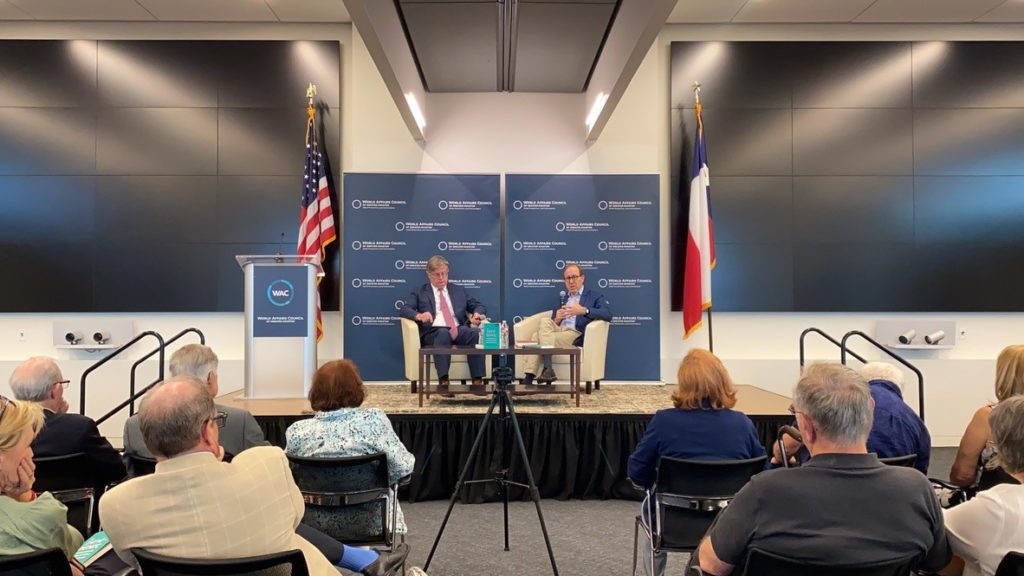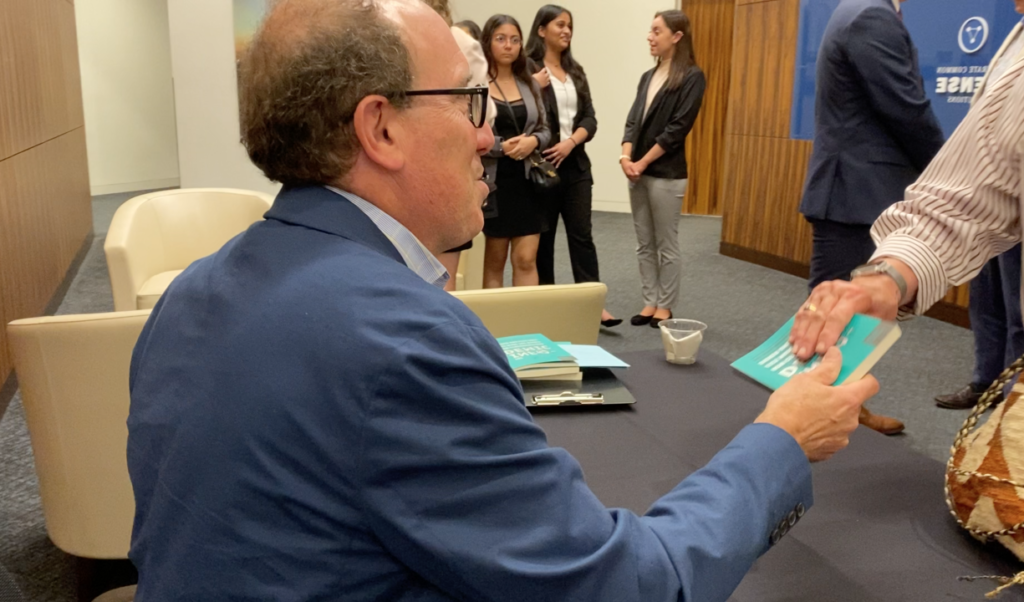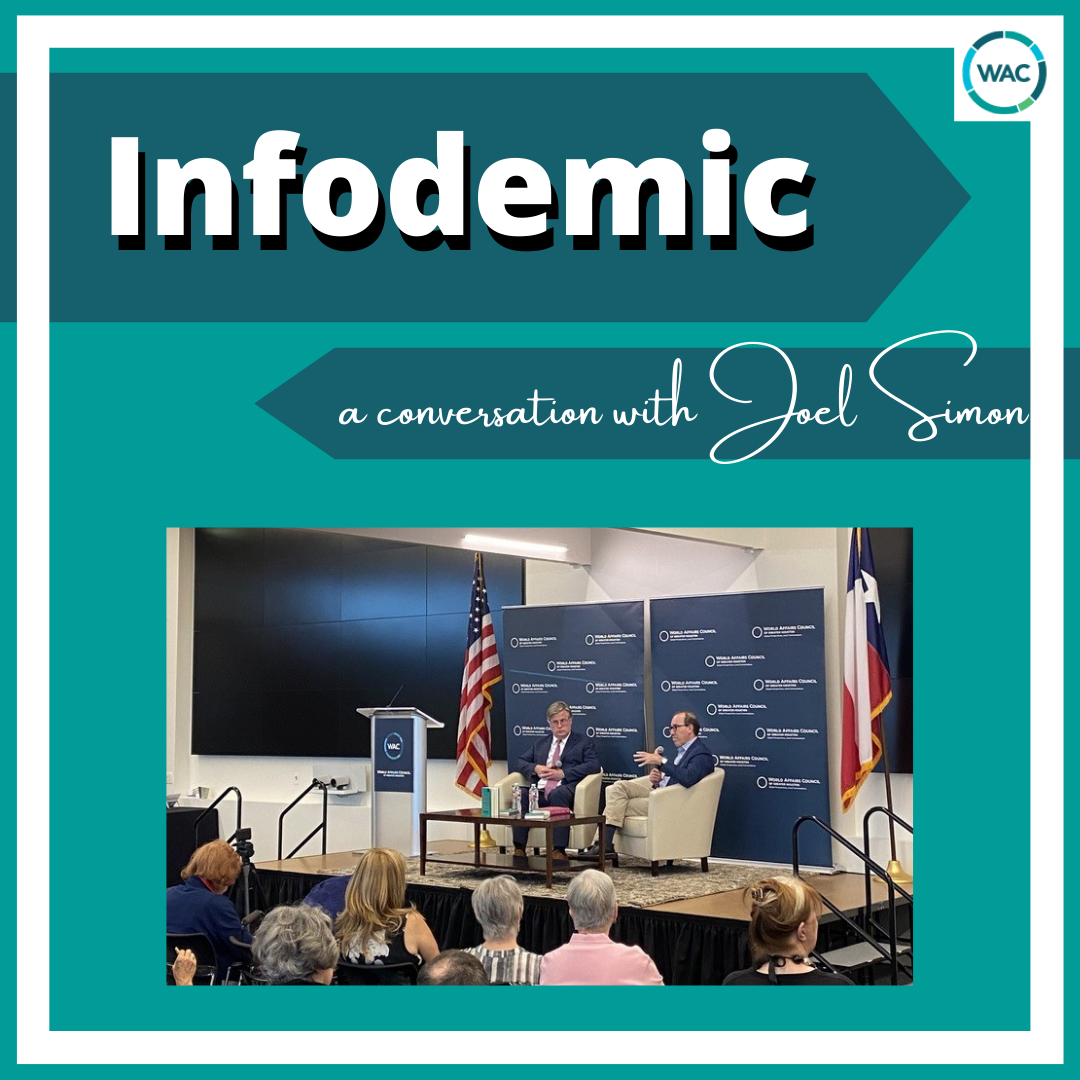
by Analys Barinaga
The legacy of the COVID-19 pandemic has significantly changed life for people around the world, from the greater incorporation of technology into our lives to the increased awareness of communicable diseases. One particularly significant effect is the impact that the pandemic had on the relationship between journalists and governments.
Author and activist Joel Simon explores this very topic in his co-authored book Infodemic. Mr. Simon has travelled the world as a journalist, served as the Executive Director of the Committee to Protect Journalists, and has published four books. The World Affairs Council of Greater Houston had the pleasure of hosting this distinguished speaker to better understand his perspective on the threats to journalism in the shifting world of international affairs.
Throughout the interview, Joel Simon spoke knowledgeably about the varying government responses to journalism and information sharing during the pandemic. As he outlines in the book, countries on the spectrum from authoritarian to democratic used different strategies to suppress the sharing of information and flood the public with misleading data.
At the onset of the pandemic, China attempted to prevent news about COVID-19 from escaping Wuhan and detained journalists who tried to do so. As the pandemic spread throughout the world, many governments, from Russia to Iran, sought to project an image of security and health while their residents were being decimated by a growing disease. Official death tolls were often gross underestimates and those who attempted to publish accurate data were drowned out by a flood of government propaganda. Even democracies fell into the trap of censorship as journalists were labeled as alarmists and independent news aggregating cites and social media platforms filtered what the public saw.
Joel Simon also touched on the transforming access to information, both in terms of greater digitization and a shift towards centralized, national news. Whereas readers of the past consumed more news about their local communities, today’s readers gravitate towards national and global news that they read online. These trends seem to contribute to increasing polarization as readers consume information about events which they are not personally familiar with and lack access to the nuances of firsthand experience. As Mr. Simon explains, efforts to promote local news could have positive impacts on building trust between reporters and the public, especially in times of crisis.
 In the second portion of the event, audience members had the opportunity to ask Mr. Simon questions. A topic of particular interest was how the suppression of information impacted the United States. While Mr. Simon recognized the increasing mistrust with which the media is regarded, he also acknowledged that some grace must be given to reporters and experts at the height of the pandemic, who often had to make their best educated guesses without yet knowing all the scientific data behind the pandemic.
In the second portion of the event, audience members had the opportunity to ask Mr. Simon questions. A topic of particular interest was how the suppression of information impacted the United States. While Mr. Simon recognized the increasing mistrust with which the media is regarded, he also acknowledged that some grace must be given to reporters and experts at the height of the pandemic, who often had to make their best educated guesses without yet knowing all the scientific data behind the pandemic.
As the conversation drew to a close, Mr. Simon spoke about the need to protect the flow of information. The COVID-19 pandemic acted as a stress-test for the global flow of information and exposed its many weaknesses that were due to censorship and mistrust. The flow of dependable information may have faltered during the pandemic, but the global community now has the experience to build a more resilient information community that is resistant to censorship and oppression. Indeed, a global perspective on journalism is vital, because, as Joel Simon puts it, “censorship in one country… impacts all of us.”
Watch a recording of the event here:

